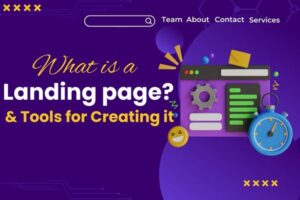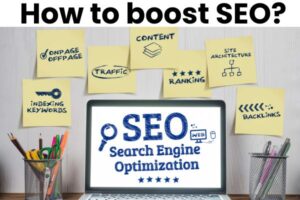Table of Contents
Toggle Introduction to Digital Marketing

Benefits of Digital Marketing for business
1. Benefits of Digital Marketing for business-Increased Reach and Visibility:
There are several benefits of digital marketing for business one of it includes increasing reach and visibility. Digital marketing allows companies to go beyond borders. Using the internet, your brand can target an international audience enlarging its presence and attracting potential customers outside of regular confines.
2. Benefits of Digital Marketing for business-Targeted Marketing:
One of the most incredible advantages is that it enables one to reach a certain target market. Through Google Ads and social media advertising, firms can customize their marketing campaigns so as to attract different types of audiences depending on their age, location, interests, and online behavior in order to concentrate their efforts on the most important prospects.
3. Benefits of Digital Marketing for business-Cost-Effectiveness:
Digital marketing is considered beneficial for business due to its cost effectiveness. Compared with traditional marketing channels, digital marketing often turns out to be more cost-effective. Online campaigns allow businesses-such as yours-manage budget efficiently in real-time and maximizes return on investment (ROI).
4. Benefits of Digital Marketing for business-Data-Driven Decision Making:
Digital marketing is beneficial for business as it provides data-driven decision as compared to traditional marketing. The internet provides plethora of data and analytics that enable businesses make informed decisions. For instance from website analytics to social media insights this data helps optimize strategies, understand client’s behavior and fine-tune campaigns for better returns.
5. Benefits of Digital Marketing For business-Improved Customer Interaction:
Engagement is key, thus digital marketing enables direct communication with your customers. Social media platforms as well as email marketing, for example, allow businesses to build relationships, gather feedback, and address customer concerns in real-time, fostering trust and loyalty.
6. Personal stories:
Digital marketing allows businesses to create messages that are tailored to each person. Companies can use customer information to make content that is related to what interests different people. This improves the full experience for customers and increases the chances of making a sale.
7. Available all the time:
Unlike regular stores that have set hours, digital marketing means your online brand can be seen anytime. People can interact with your company whenever is convenient for them, no matter where they live in the world.
8. Seen more online:
Strategies like optimizing websites to be found easily (SEO) and making helpful content (content marketing) lead to more visibility on the internet. A strong online presence helps people recognize your brand, so customers are more likely to choose your products or services over others..
9. Building Trust Through Social Proof:
What do customer reviews, testimonials, and social media comments mean for your brand? They’re social proof! These elements can make people trust your business. Positive feedback from happy customers can change minds and make folks think highly of your business.
10. Better Conversion Rates:
Email marketing and retargeting work wonders for digital marketing. Why? They can boost conversion rates hugely. By guiding potential customers with custom content, it increases the chances they’ll become real customers.
11. Marketing in Real-Time:
Want to take advantage of the latest trends and events? Digital marketing lets you do that in real-time. With social media and content marketing, businesses can be nimble. They can tune their messages to match current events in the world or their field.
12. Flexibility and Adaptability:
The benefit of digital marketing over traditional marketing is that it is flexible and adaptable. Digital marketing has the advantage of allowing flexibility to modify strategies according to performance metrics and shifting market situations. Unlike traditional marketing techniques that may involve lengthy preparation and manufacturing phases, digital initiatives are simple to alter swiftly to accomplish ideal outcomes. This channel permits evaluating campaign success and readily implementing alterations as needed. It offers an advantage over conventional methods with generally fixed timelines and assets. Businesses can immediately react to consumer behavior changes or other disruptions online. The adaptability of digital platforms empowers ongoing optimization in real-time for maximum impact.
13. Data Collection and Analysis:
The abundance of consumer information accessible through digital platforms presents companies with meaningful opportunities to cultivate valuable understandings about customer conduct. By scrutinizing the wealth of available data, businesses can gain perceptive knowledge into client preferences, interests, and decision making processes. Such analysis facilitates the refinement of outreach tactics and marketing initiatives to more precisely align with proven consumer inclinations. This data-driven evaluation further empowers companies to make informed, strategic decisions across various aspects of operations. When utilized judiciously, these digital insights allow organizations to both strengthen connections with existing patrons and capture new audiences by catering communications more
14. Competitive Advantage:
In today’s dynamic business world, adopting digital marketing is essential for gaining an edge. Businesses that utilize innovative digital tools and tactics can surpass competitors and fulfill the evolving expectations of their customers.
15. Personalized Marketing:
Digital marketing allows businesses to group their audience into distinct segments based on factors like age, browsing habits, or preferences. This segmentation enhances the efficiency of marketing campaigns as they can be tailored to resonate with the unique needs of each segment.
How can digital marketing boost your brand visibility
SEO: Boosting Your Online Presence
Fronting digital visibility is Search Engine Optimization (SEO). This strategy involves enhancing a website’s content, structure and other elements with an aim of improving organic search rankings. Search engine optimization (SEO) is the practice of aligning one’s online presence with the underlying parameters of search engines such as Google to enhance visibility and draw meaningful visits hence being a vital component in any digital promotion strategy.
Content Marketing: Weaving Captivating Stories
In the world of digital marketing, nothing beats quality content. Consequently, content marketing involves creating and distributing useful and relevant information in order to engage prospects. Content marketing builds rapport while positioning brands at the forefront through blog posts; articles; videos; infographics etc.
Social Media Marketing (SMM): Building A Sense Of Community Across Platforms
The omnipresence of platforms such as Facebook, Instagram, Twitter and LinkedIn is exploited by Social Media Marketing (SMM) to establish personal relationships with the audience. SMM enables businesses to generate brand recognition, foster rapport, and target specific market segments via content that captivates them.
Email Marketing: Cultivating Relationships In The Inbox
A targeted audience can still be reached through email marketing. Businesses are able to convert leads more effectively by sending newsletters, offering promotions or sending personalized content.
Influencer Marketing: Capitalizing On Social Authority For Brand Development
Influencer marketing targets people who enjoy a significant following on social media platforms. Corporations can use their credibility to reach more customers and build trust among future buyers.
Video Marketing: Engaging Viewers Through Visual Storytelling
Video marketing is an innovative mode of content delivery. Platforms like YouTube and TikTok provide possibilities for conveying messages about products and engaging audiences through visual images, engaging content, providing a memorable and immersive experience.
Mobile Marketing: Meeting Audiences Where They Are Mobile marketing focuses on reaching users on their smartphones and other mobile devices. From mobile app marketing to in-app advertising and mobile-optimized websites, this strategy ensures a seamless and user-friendly experience for on-the-go consumers.



